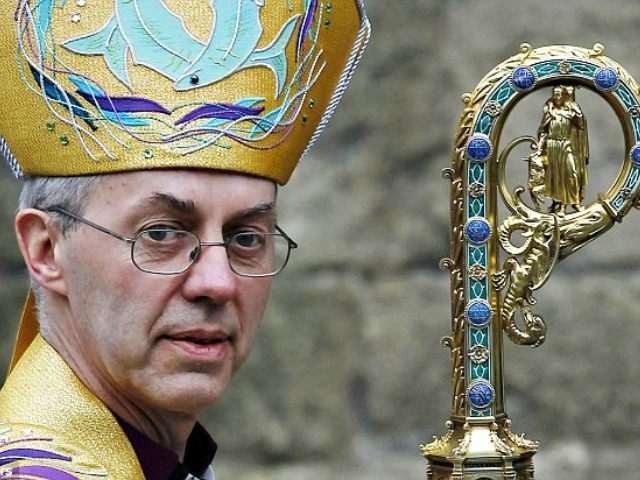Religious leaders seem desperate to hide behind “bland statements of anaemic intent” about what they have in common rather than facing up to the “profound differences” between them, said Archbishop of Canterbury Justin Welby, who called the practice “dishonest.”
Welby said that it seems that faith leaders fear “that the very worst outcome could possibly be that we end up acknowledging our differences.”
The Archbishop was speaking Tuesday evening before 350 guests at the annual dinner of the Board of Deputies of British Jews held in central London.
He criticized the tendency to paper over the real, deep differences between religions “in a world where we’re facing increasing levels of global religious violence.”
“It is disingenuous and ultimately dishonest,” he said, “because alongside all that we hold in common and all that we share, there are profound differences too in what we believe and in the outworking of our faith.”
Welby was especially critical of the actions of Islamist jihadists. “It has been a very shocking twelve months,” he said, “with ISIS, the Paris attacks, Boko Haram, Kenya and many, many other forms of very severe religious violence.”
While denouncing a recent rise in anti-Semitism in the UK and Europe, the archbishop also pledged the commitment of the Church of England to combat it by all means possible.
In his carefully worded address, Welby avoided speaking against Islam by name, though it was clear from the context of his words that pretending that Islam, Christianity, and Judaism all want the same thing is utopian and ultimately a lie.
He did censure Hindu violent radicalism as well as ISIS and Boko Haram and suggested that religious leaders contribute to extremism by acting as if all faiths are basically the same.
Welby said that faith leaders must work together to provide an “alternative vision” to combat the influence of extremists.
As an antidote to the violence of religious radicals, the archbishop proposed a counterweight, an “ideology that undermines, that subverts, the arguments of the radicals, that models an alternative that is about human flourishing and about the flourishing of human societies.”
Follow Thomas D. Williams on Twitter @tdwilliamsrome.

COMMENTS
Please let us know if you're having issues with commenting.